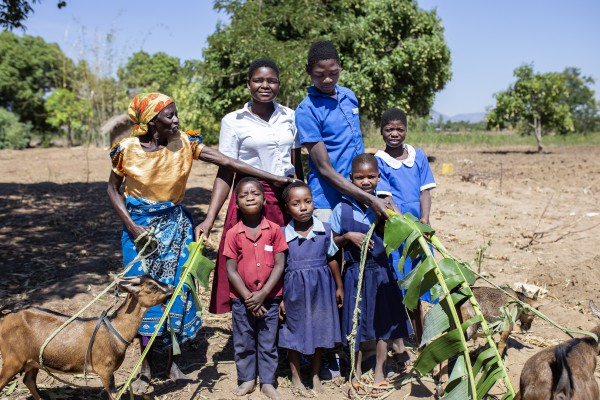As part of Team Europe’s response to COVID-19 in Malawi, the European Union has allocated €39 million to mitigate the negative effects of the COVID-19 pandemic. The funding will address the increasing needs of vulnerable parts of the population in the field of nutrition and social protection, including pregnant women and children.
Commissioner for International Partnerships, Jutta Urpilainen, said: “The COVID-19 pandemic risks wiping out in many countries any progress made in human development over the recent years. Together, as part of our Team Europe response, we are allocating €39 million to Malawi to boost nutrition and social protection among particularly vulnerable communities. As a former teacher myself, I am proud that, through this contribution, 280,000 pupils will be able to continue accessing school meals. This is key for their development and to their education.”
The pandemic has caused unprecedented challenges to Malawi due to the strained health care system and the effects of the containment measures. The most vulnerable have been most affected by food scarcity and an increase in food prices. For this reason, this additional Team Europe support focuses mainly on addressing the socio-economic consequences of the pandemic and will be composed of:

A €16 million top up for the Afikepo programme
This 16 million increase for the Afikepo programme (from €70 to €86 million), which in the local language of Chichewa means: “Let them [the children] develop to their full potential”, will allow 280,000 pupils to benefit from school meals in 200 primary schools in Malawi’s Southern region thanks to the programme. Smallholder farmers in the surrounding communities will be the principal suppliers of the food, contributing also to support the local agri-systems.
The programme contributes to improving the nutritional status of school-age children and to increasing income opportunities of the surrounding communities. As the pandemic is limiting access to health check-ups and malnutrition treatments, the EU support also includes COVID-19 prevention measures, such as improving access to safe water, sanitation and hygiene as well as behavioural change interventions to benefit school learners, their families and their entire communities. The World Food Programme, which has a longstanding partnership with the Government of Malawi on school feeding programmes, will implement the action.
A further €23 million for Social Cash Transfer programme for vulnerable communities
A further €23 million will be provided to support the National Social Cash Transfer Programme under the SoSuRe Programme (increasing the total funding from €50 to €73 million) to support vulnerable communities. Building on the lessons learned from the programme’s implementation to date, the additional support will allow to increase the number of beneficiaries in rural areas and extend it to urban vulnerable populations.
Currently, the National Social Cash Transfer Programme (SCTP) includes 65,000 households (269,666 individuals) in rural settings only. The monthly amount paid under the regular programme is MWK 9,500 (around €11/12) per month (paid every 2 months, so 6 times a year).
Rural support focuses on families who live on less than $2 a day and have limited capacity to access the labour market, for example elderly people, persons living with disabilities and single parent households.
As a response to the COVID-19 pandemic and its impact, the top up for the programme will allow to increase the number of regular beneficiaries of the programme in rural areas from 65,000 to 80,000 in the next year. Beneficiaries in rural areas will receive a temporary top-up of MWK 5,000 (€5/6) for 4 months.
In addition, 27,000 households in urban settings will receive a 3 months cash support (35,000 MWK, equivalent to €39 per month) to cushion the socioeconomic effects of COVID-19. The amount (35,000 MWK) is linked to the minimum salary in the country.
Urban beneficiaries will include households depending on daily work in the informal sector, who live from hand to mouth, and have now seen their livelihoods deeply affected by the COVID-19 crisis.
Support will be provided through cash transfers, which could serve to finance, for example, women’s economic and social empowerment, livelihood diversification among the vulnerable or food security. It is part of the EU support to strengthening social protection systems in Malawi. Germany and Ireland are also involved in the Social Cash Transfer Programme. The KfW Development Bank is the main implementing partner of this action.


